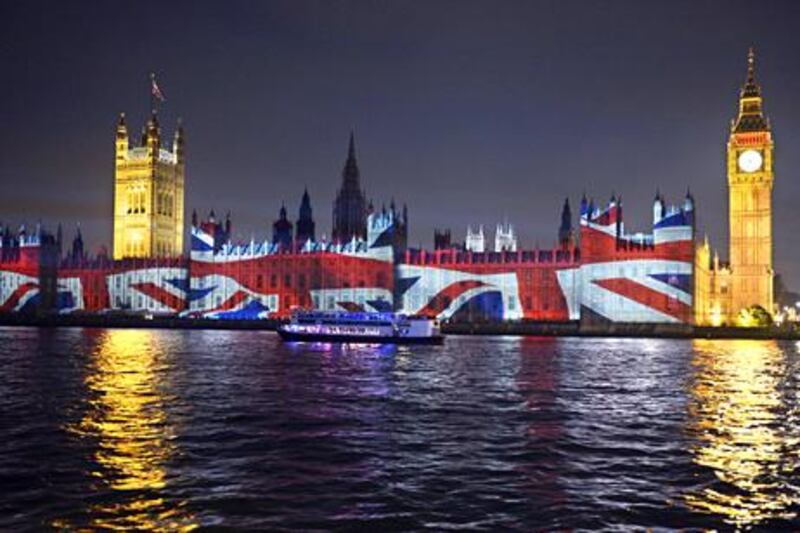Bravo, said a French bank official as the Olympics came to an end.
Not among those compatriots equating British cycling medals with ingenious cheating, he was echoing a verdict delivered across the world.
From a stunning opening ceremony to the memorable close, the tournament was seen as a rip-roaring success for the host country.
But now the biggest of Britain's recent run of parties is over, there is spoilsport resignation to the sequel: a raging hangover as the country returns to the ugly realities of financial crisis and double-dip recession.
The passage through choppy economic waters may have seemed calmer during 16 months of national celebration that began with the wedding of Prince William and Kate Middleton in April last year and continued with Queen Elizabeth II's diamond jubilee in June before the Olympics climax.
With such distractions out of way, the voyage threatens renewed discomfort.
One early spanner has been thrown into the post-euphoria works. The insurance group Aviva surveyed 500 small and medium-sized companies and found one in five feared the benefits of the big events would be short-lived.
While small firms expected summer trade to be boosted by the Olympics and jubilee, there was concern it would be followed by a fall in revenue. Clearly, any boost from the royal wedding is a fading memory.
Levels of optimism varied according to region, with the most upbeat findings recorded in the Midlands, Yorkshire and the Northeast as well as, unsurprisingly, the capital. But only 6 per cent had found trading conditions easier than expected for the first six months of the year.
"Trading conditions clearly remain tough," says David Bruce, Aviva's commercial product manager. "It seems many owners are perhaps being more pragmatic than optimistic in their forecasting of future revenues."
As if to reinforce the message all is not well just because the Games gave the United Kingdom cause for collective pride, Aviva itself reported a net loss after tax of £681 million (Dh3.92 billion) in the first half of this year against a profit of £465m a year earlier.
Operating profits fell from £1.04bn to £935m.
London's mayor, Boris Johnson, talked up the durability of the feel-good factor when he spoke of securing a "transport, housing, infrastructure, sporting, cultural and social legacy" to turn the Games to gold for decades to come.
Not everyone sees much foundation for that. A columnist in the Daily Mail, which sees itself as a robust voice of England's middle classes, predicted a swift return in the news agenda to "tales of war, bogus celebrities and economic gloom".
On cue, the Bank of England cut its outlook for economic growth to zero for this year, the governor Sir Mervyn King warning poor performance would continue for at least three years because of the euro and broader world crises.
And there has already been dismay from corners of Britain that considered they helped to pay for the Olympics extravaganza, with its £9bn national budget and £2bn on top for the capital.
In live music, arts funding cuts, lottery profits diverted to the Olympics kitty and recession presented a "triple whammy" for ticket sales, frightening promoters and forcing many cancellations, according to Ian Anderson, the editor of the independent music magazine fRoots. "We hoped for some relief after the Games but now the prime minister David Cameron says they were such a success higher sports funding will be maintained for four years."
Mr Cameron may hope Olympics fervour halts the sharp decline in confidence in the coalition government he heads.
But with exports struggling, unemployment more likely to rise than fall over the long term (despite the fact the number of jobless was down for the quarter yesterday) and household budgets stretched, recovery looks distant.
Mr Cameron and Mr Johnson's hopes for a lasting fillip will be judged against Sir Mervyn's more sombre assessment: "The Games cannot alter the underlying economic situation we face."
twitter: Follow and share our breaking business news. Follow us
iPad users can read the digital edition of business section as it was printed via our e-reader app. Click here






